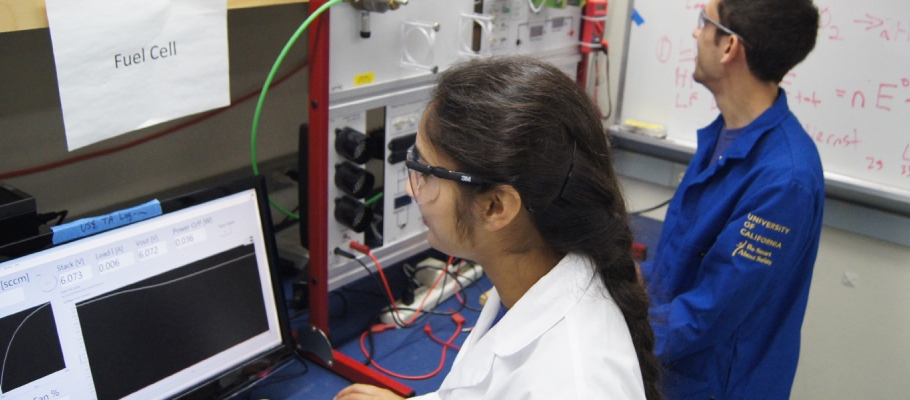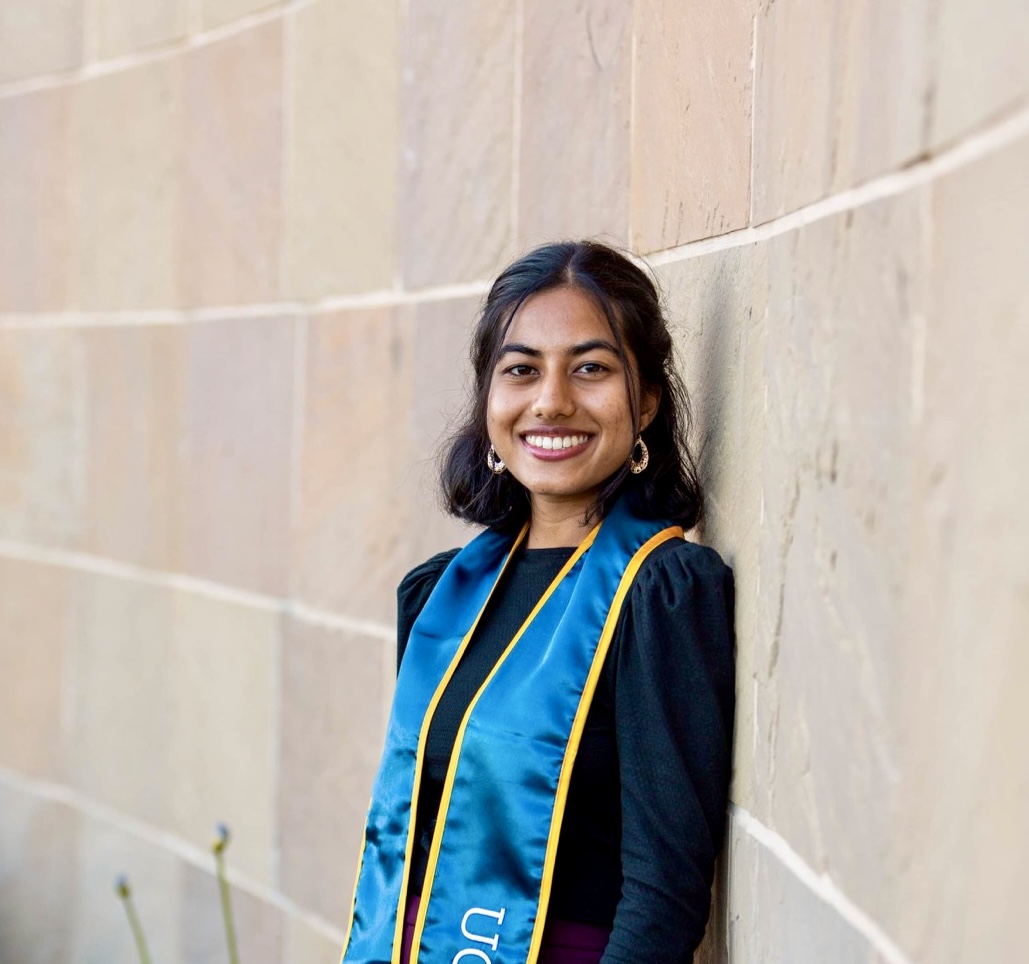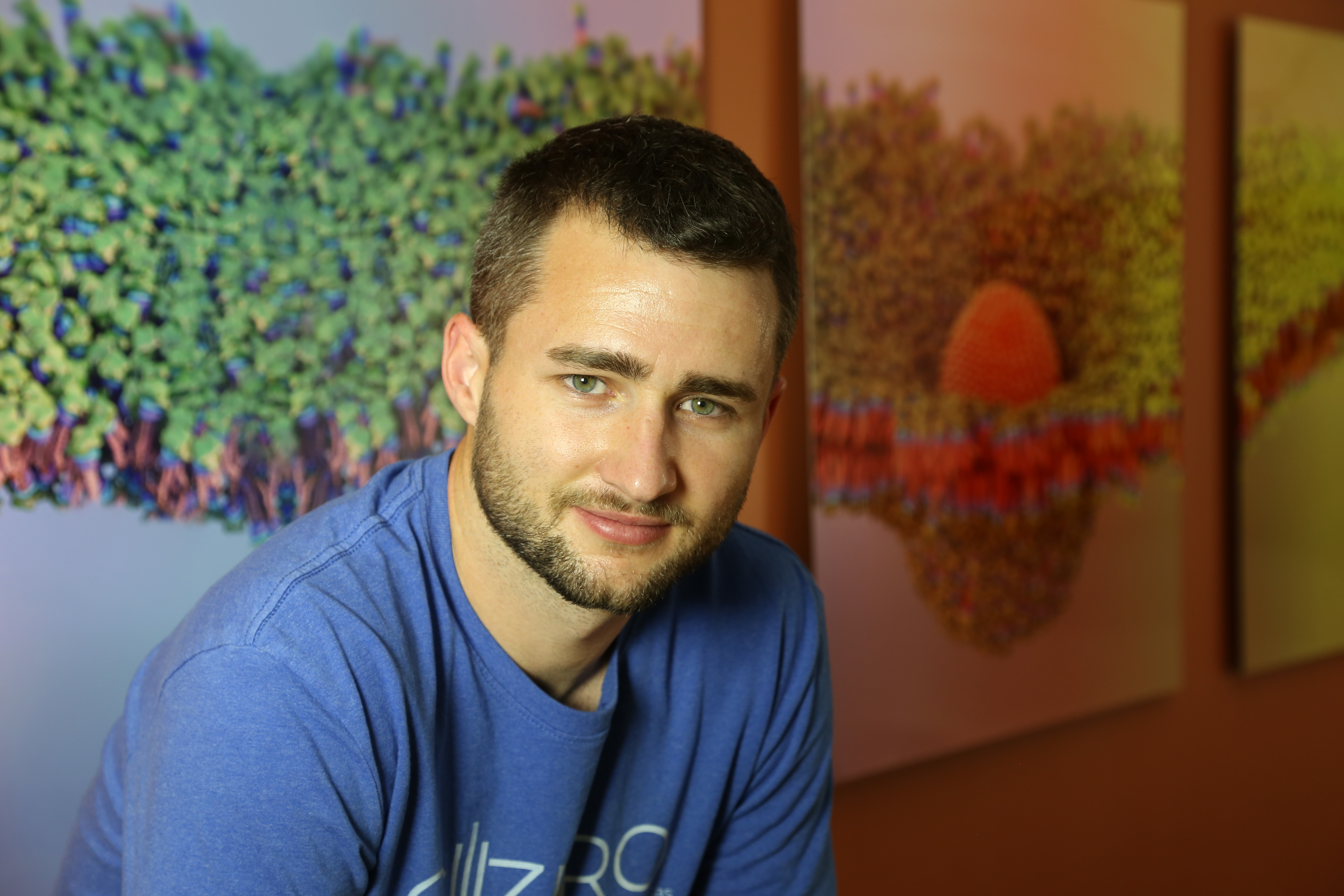
“There are few experiences better suited to prepare a student for lifelong learning than an active participation in research early in his or her education." — Professor Herb Kroemer, Nobel laureate
UCSB Undergraduate Research
- Undergraduate Research at UCSB
- Undergraduate Research Blog
- A Student's Guide to Conferences: Engineering student Jessica Wong explains how to pack and what to expect at your first academic conference.
The chance to participate in the leading edge research at UCSB is an unbeatable opportunity for engineering undergraduate students. Take part in meaningful discoveries. Get your name on published academic papers. Present your research via poster presentation at colloquia and conferences. Below is our advice for landing a successful research opportunity at UCSB.
How & When to Get Started
It’s never too early to start considering how you’ll get involved in research. Most programs and internships will require an application, for which the deadline could be several quarters to a year before the program begins. You may want to get involved in several programs throughout your years at UCSB. Consider your interests seriously and reach out to faculty and advisors with questions. Give yourself at least six months in advance to plan, and in the case of education abroad or research abroad programs, at least a year.
Looking for step by step suggestions? Read our Getting Started with Research at UCSB handout.
Undergraduate Research Programs
UCSB Research Programs
- Office of Research listing of all undergraduate research programs
- Materials Research Laboratory (MRL) undergraduate research programs, including summer programs, international exchange programs, and more.
- Undergraduate programs through CSEP: Center for Science & Engineering Partnerships
Course Credit for Research or Internships
Engineering departments offer courses for qualified students to earn credit for doing research projects or internships in industry. Students interested in course credit for internships should contact their department’s undergraduate advisor for more information and enrollment criteria. Courses include:
- Chemical Engineering: ChE 196, 198
- Computer Science: CMPSC 192, 193, 196
- Electrical & Computer Engineering: ECE 192, 193, 196
- Mechanical Engineering: ME 193, 197
Faculty Research Labs
Most professors in engineering and the sciences at UCSB are leading one or multiple research projects, and they encourage undergraduate students to intern in their labs. UCSB’s interdisciplinary approach to education and research makes it possible for engineering students to work with professors in any discipline, given the right mutual fit.
Approach professors doing research that interests you. Learn all you can about the professor and their work, and come prepared to talk about your qualifications, interests, and what kind of internship you are asking for (e.g. Credits? Senior thesis? Time commitment?). Most professors appreciate an email introduction that is clear, polite, and professional. Keep in mind they will likely be friendly and amenable to helping you, but can be quite busy or even traveling frequently.
Research programs at Other Institutions
Institutions across the nation and around the world host undergraduate research programs. Ask your department faculty and advisors about programs they might be aware of – after all, our faculty also studied at leading institutions. Most universities within the University of California 10-campus system also offer summer research programs. Students can search the National Science Foundation’s Research Experiences for Undergraduates (REU) database for programs.
Research Recognition
Undergraduate Research Colloquium
Hosted by the College of Letters & Science, Office of Undergraduate Education, the UCSB Undergraduate Research Colloquium and Undergraduate Research Slam event is open to students from all majors and disciplines that have completed research.
Matthew Tirrell Award for Distinction in Undergraduate Research
Presented at the College of Engineering’s annual Senior Send-Off event, the Tirrell Award recognizes a College of Engineering senior who has shown excellence and promise in research during his or her academic career. The award was established in 2009 in honor of former Engineering Dean, Professor Matthew Tirrell.
Undergraduate Research Blog
Already involved in research? Consider joining the student bloggers who contribute to the Office of Research’s Undergraduate Research Blog. Meet the current bloggers. Contact the Office of Research about getting involved.
Research Stories


Read about undergraduate research stories in Science and Engineering

